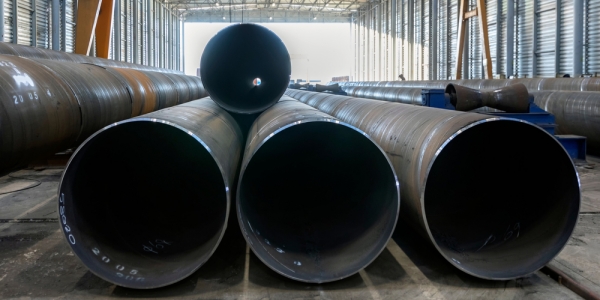When Spiral Submerged Arc Welded (SSAW) pipes are utilized in various engineering applications, adherence to different standards is necessary. The entire process from production to manufacturing, testing, and delivery must conform to these standards. A benchmark is essential for assessing the quality of spiral welded pipes, and with the implementation of standards for spiral steel pipes, there is a clear basis for evaluation. This article will discuss the standards for the implementation of carbon steel SSAW pipes.

ASTM Standard
The ASTM standard, issued by the American Society for Testing and Materials, governs the production of carbon steel spiral welded steel pipes. It specifies the chemical composition, mechanical properties, dimensions, permissible cracks, defect levels, and other indicators for pipes. Notable ASTM standards include ASTM A53/A53M and ASTM A252.
API Standard
The API standard, issued by the American Petroleum Institute, is predominantly used in the production and manufacturing for the oil and gas industry, including transportation, downhole oil production, and drilling equipment. It also regulates the production of carbon steel spiral pipes, comprising two parts: API SPEC 5L for oil and gas transmission pipelines and API SPEC 5CT for the manufacturing of oil well casing.
DIN Standard
The DIN standard, formulated by the German national standards agency, also provides specifications for the production of carbon steel spiral pipes. Key DIN standards include DIN 2458, DIN 17175, and DIN EN 10217-1. DIN 2458 is suitable for steel pipes used for fluid transport under non-pressure conditions, DIN 17175 for boilers and pipes under high temperature and pressure, and DIN EN 10217-1 for pressurized steel pipes in a system.
GB Standard
The GB standard refers to the national standards of China. Implementation standards for spiral welded pipes include GB/T9711-2017, GB/T3091-2015, and SY/T5037-2018. These standards outline technical requirements and specifications for the production, manufacturing, inspection, chemical composition, mechanical properties, hydraulic testing, and non-destructive testing of spiral welded pipes.
GB/T9711 Standard is a national standard, primarily for steel pipes used in the oil and gas industry, encompassing both seamless and welded steel pipes. It is more stringent than the other two standards, with GB/T9711.1 representing Grade A steel and GB/T9711.2 representing Grade B steel. The quality and testing requirements in GB/T9711.2 are generally higher than those in GB/T9711.1 and are typically applicable to steel pipes transporting flammable fluids, excluding cast pipes.
GB/T3091 Standard is also a national standard, designated for steel pipes used for low-pressure fluid transportation, which includes both spiral and straight seam welded steel pipes.
SY/T5037 Standard is a ministry standard, mainly for submerged arc welded steel pipes used in water supply and drainage for low-pressure fluids. It includes both spiral submerged arc welded steel pipes and straight seam submerged arc welded steel pipes.
The SY/T5037 standard is less stringent, specifying materials for spiral welded pipes and hydraulic pressure testing. However, it only mandates a 20% spot inspection for X-ray non-destructive testing, in contrast to the other two national standards, which require a 100% X-ray inspection.

 English
English Español
Español




 Tel : +86-18565811709
Tel : +86-18565811709 Email :
Email : 

 News
News




